RaspberryPi
Latest

The PIS2 is a portable PS2 years in the making
The PlayStation 2 has been in the grave for over a decade, but that hasn't kept gamers from tinkering with Sony's iconic console. Reddit user darkwingmod has been working on and off for several years to perfect his vision of a portable PS2, the PIS2. The build features genuine PS2 hardware augmented with a Raspberry Pi 2, which loads game files over an ethernet-connected SMB server; no emulation is involved. Darkwingmod says that the games run close to full speed and FMVs play smoothly.

How to turn a Raspberry Pi into a game console
By Thorin Klosowski This post was done in partnership with Wirecutter. When readers choose to buy Wirecutter's independently chosen editorial picks, Wirecutter and Engadget may earn affiliate commission. Read the full guide on how to turn a raspberry pi into a gaming console here. The Raspberry Pi is a $35 computer that can do a lot of things, but few projects are as popular as turning it into a retro-gaming console; imagine something the size of an NES or SNES Classic mini console with a few hundred games on it instead of a few dozen. With about half an hour of free time and some lightweight technical know-how, you can convert this card-deck–sized computer into a console capable of emulating nearly every classic video game system from the 1970s, '80s, and '90s.

Valve helps Raspberry Pi owners build their own Steam Link box
Steam Link boxes are no more. The simple black micro PCs designed to let you play games in the living room -- or anywhere else in the house away from your gaming rig -- is sold out everywhere and it seems Valve has no plans to produce more. The Steam Link app continues to live on in mobile devices and smart TVs, so it's not the end of days, but this doesn't offer the same latency-mitigating clout as Ethernet-wired hardware. Valve, however, is offering an alternative, and it comes in the form of Raspberry Pi.

A cheaper, smaller Raspberry Pi 3 is now available
The Raspberry Pi Foundation released its upgraded flagship computing board, the Raspberry Pi 3 Model B+, earlier this year. Now the boards are shipping in volume, the company has been able to turn its attention to what it calls one of its "most frequently requested 'missing' products": the Raspberry Pi 3 Model A+.

8BitDo’s Bluetooth mod kits put retired controllers back to work
The mini-console trend isn't just a case of repackaging classic, beloved games and cashing in on our shared retrophilia. There's also a practical reason for their existence: Most old consoles are incompatible with today's TVs. Unless you've held on to a CRT, you've got no choice but to seek out special signal converters or, more likely, let your best childhood friend gather dust in a closet. But there is a middle ground. With 8BitDo's $20 mod kits, you can, at least, give those classic controllers a new lease on life by repurposing them for the Bluetooth era.
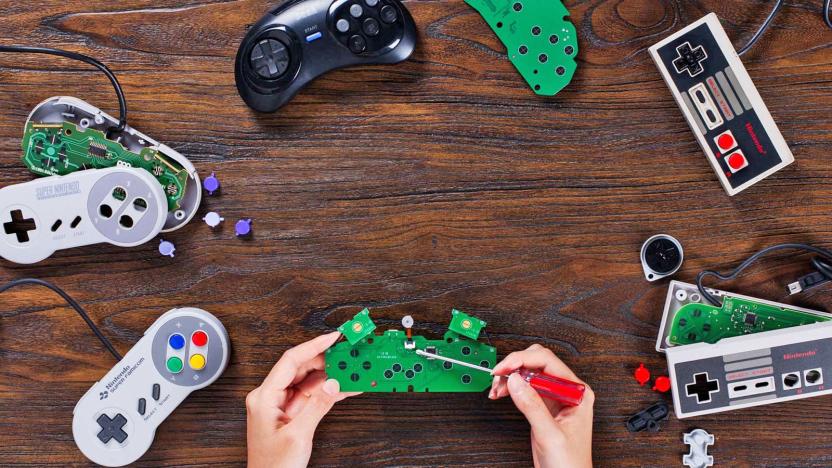
Make your classic gamepads wireless with 8BitDo's DIY kits
8BitDo will happily sell you wireless controllers that are vaguely similar to classic gamepads of yore, but it clearly can't sell you the real deal without invoking massive copyright battles. It can, however, offer you the next best thing. The company is now selling mod kits that add Bluetooth wireless to original NES, SNES, Super Famicom and Mega Drive controllers. You don't need a soldering iron or a toolbox -- so long as you're comfortable opening a vintage gamepad in the first place, you'll have everything you need (including a lithium-ion battery) to avoid stringing cords across the room.
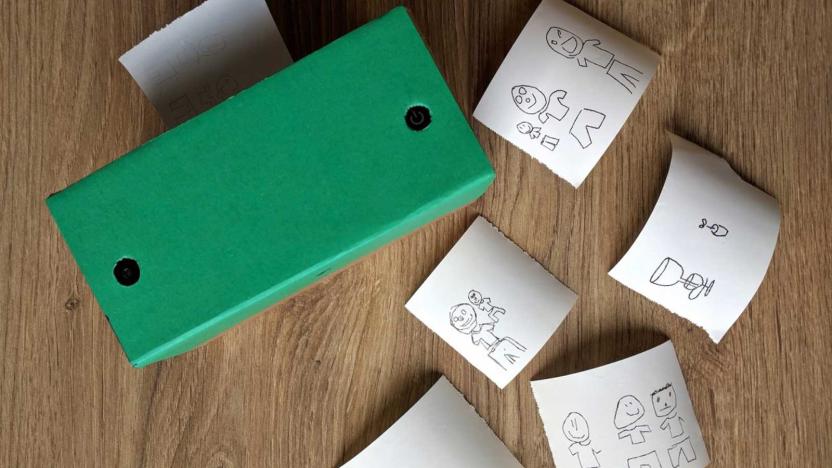
AI-powered instant camera turns photos into crude cartoons
Most cameras are designed to capture scenes as faithfully as possible, but don't tell that to Dan Macnish. He recently built an instant camera, Draw This, that uses a neural network to translate photos into the sort of crude cartoons you would put on your school notebooks. Macnish mapped the millions of doodles from Google's Quick, Draw! game data set to the categories the image processor can recognize. After that, it was largely a matter of assembling a Raspberry Pi-powered camera that used this know-how to produce its 'hand-drawn' pictures with a thermal printer.
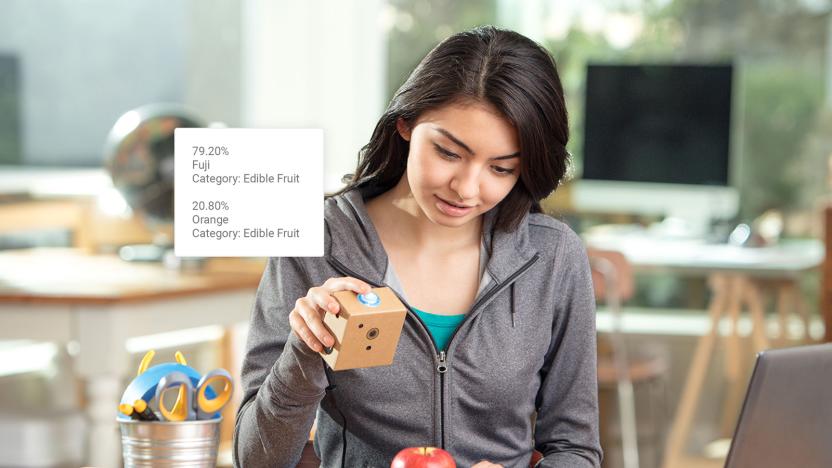
Google's latest do-it-yourself AI kits include everything you need
Google's AIY kits have been helpful for do-it-yourselfers who want to explore AI concepts like computer vision, but they weren't really meant for newcomers when you had to supply your own Raspberry Pi and other must-haves. It'll be much easier to get started from now on: Google has released updated AIY Vision and AIY Voice kits that include what you need to get started. Both include a Raspberry Pi Zero WH board and a pre-provisioned SD card, while the Vision Kit also throws in a Raspberry Pi Camera v2. You won't be going on extra shopping trips (or downloading software) just to get the ball rolling.
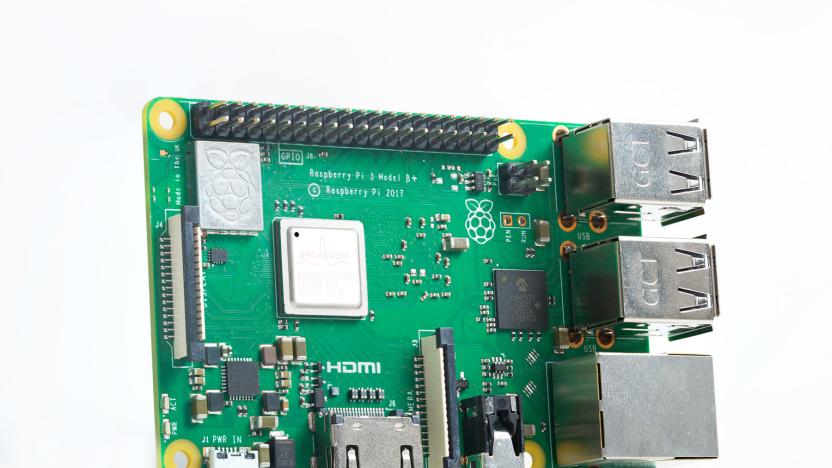
Upgraded Raspberry Pi 3 delivers more power and faster networking
Despite selling over 14 million of its low-cost DIY computing boards, the Raspberry Pi Foundation adheres to a slow release cycle. The company typically waits over a year to refresh its range, and even then improvements can be very subtle. That's exactly the case with its flagship board, the Raspberry Pi 3, which has today been upgraded to offer more speed in every sense of the word.
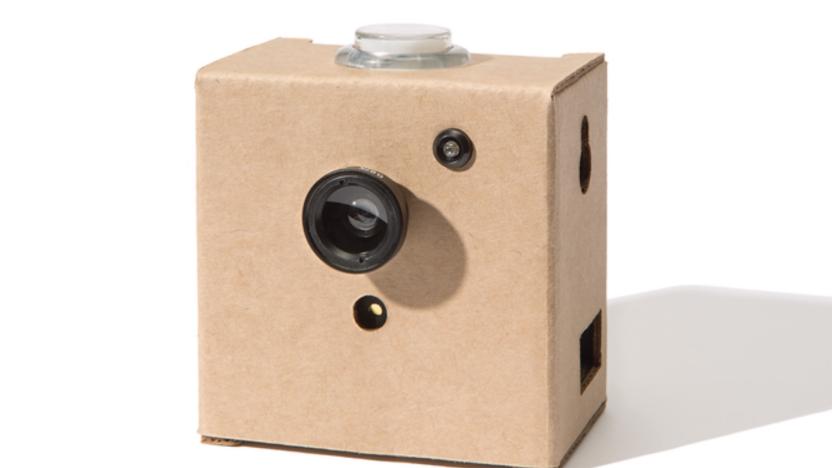
Google caters to the DIY crowd with an AI camera kit for Raspberry Pi
Google created its AIY Projects initiative -- "artificial intelligence yourself" -- to encourage developers and DIY enthusiasts to learn about artificial intelligence. The first project in the series, the ready-to-assemble Raspberry Pi-based AIY Voice Kit, was based on a project from MagPi magazine. Now Google has a second project ready for release this year: the AIY Vision Kit.

This DIY Furby Echo speaker will probably give you nightmares
Furby is already a tad creepy by itself, but a new DIY mod just stepped up the spookiness: Howchoo has converted a Furby toy into a makeshift Amazon Echo. The project works its dark magic by shoehorning a Raspberry Pi Zero W mini-PC into the critter's frame, giving it the power to run Amazon's open source Alexa Voice Service. Add a USB mic, a speaker and a stepper motor and you get a Furby that can read the news or turn up the thermostat.

UK government issues advice on what makes 'Kodi boxes’ illegal
While streaming services like Netflix and Spotify have provided easy (and affordable) ways for Britons to enjoy legal content in their homes, the UK government is still waging war against what it calls "illicit streaming devices." This week, the Intellectual Property Office published official guidance on such hardware, reiterating that streaming copyrighted material via an Android TV steamer or so called "Kodi box" is illegal and that any offending add-ons or software should immediately be removed.

Raspberry Pi laptop teaches code with modular innards
The power and affordability of the Raspberry Pi has given rise to a new type of computer. One that goes beyond the credit-sized board, with colorful shells and displays that make it feel like a normal laptop or PC. The latest is the all-new Pi-Top, a modular laptop with a unique sliding keyboard. Pull it toward you and a large tray is revealed underneath with a Raspberry Pi 3 board and space for additional parts. The idea is to tweak and upgrade its innards for different coding projects designed by the Pi-Top team, thereby learning about code and electronics simultaneously.
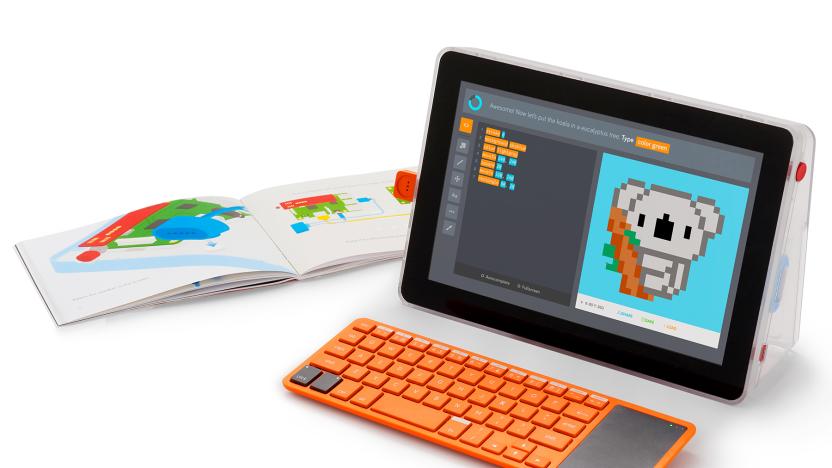
Kano combines its coding kits for a DIY 'laptop'
Kano, the company behind a variety of build-it-yourself computer and coding kits, has unveiled a "laptop" today. A portable computer is probably more accurate. Whereas most laptops have a clamshell design, the new "Computer Kit Complete" keeps the screen and keyboard separate. All of the components are kept inside the display unit, and like a box of LEGO, there's an instruction booklet that teaches you how to put everything together. One of the parts is a Raspberry Pi 3 board, which runs custom software called Kano OS. It's packed with child-friendly programming activities and some basic apps including YouTube and WhatsApp.
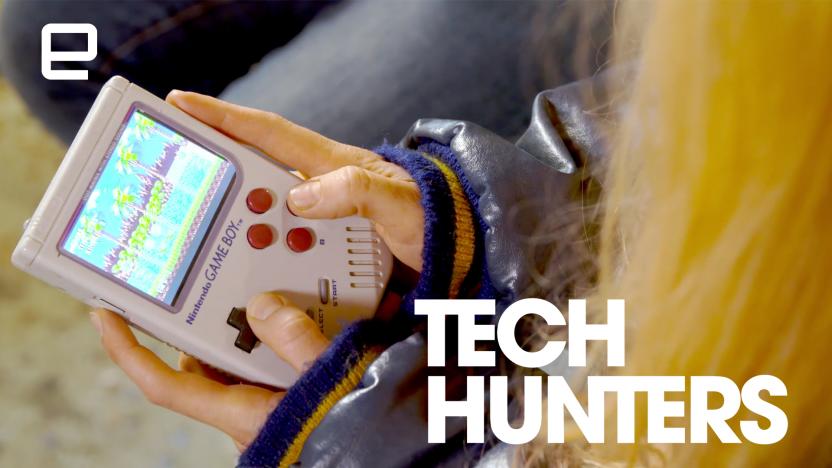
Tech Hunters: Opening up new worlds with the Nintendo GameBoy
You have to hand it to Nintendo: the company knows how to change the way people play video games. As millions of gamers getting to grips with the Switch, which delivers A+ games on-the-go as well as it does docked at home, many will remember the console that pioneered the concept of portable gaming: the GameBoy. Launched in Japan in 1989, the GameBoy sold over 300,000 in its first two weeks and over 100 million in total. The 8-bit handheld console supported small interchangeable cartridges and its monochromatic display could screen render games in four different colors of gray, but thanks to titles like the side-scrolling Super Mario Land, Kirby's Dream Land and Tetris, consumers just couldn't get enough of it. With so many units sold, there's a plethora of handsets still available to quench your retro gaming needs, as Julia Hardy discovered in Croydon. But what if we could open up new worlds on the portable brick? We'll hand it over to Simon Ellis from Retrogamebase to see what else we can get it to do.

Microsoft made its AI work on a $10 Raspberry Pi
When you're far from a cell tower and need to figure out if that bluebird is Sialia sialis or Sialia mexicana, no cloud server is going to help you. That's why companies are squeezing AI onto portable devices, and Microsoft has just taken that to a new extreme by putting deep learning algorithms onto a Raspberry Pi. The goals is to get AI onto "dumb" devices like sprinklers, medical implants and soil sensors to make them more useful, even if there's no supercomputer or internet connection in sight.

Intel has less competition against Raspberry Pi
Say goodbye to Intel's Edison, Joule and Galileo compute modules. The company has unceremoniously canceled its developer kit lineup, which were meant to give it a foothold in the burgeoning Internet of Things arena, ZDNet reports. Additionally, Intel also canceled several of its Recon Jet smart glasses products, though that's less of a surprise. With Galileo, Intel wanted to compete directly against the ARM-powered Raspberry Pi, while Edison shrunk down a full development kit to the size of an SD card. Joule, which launched last year, was its most powerful compute module yet.
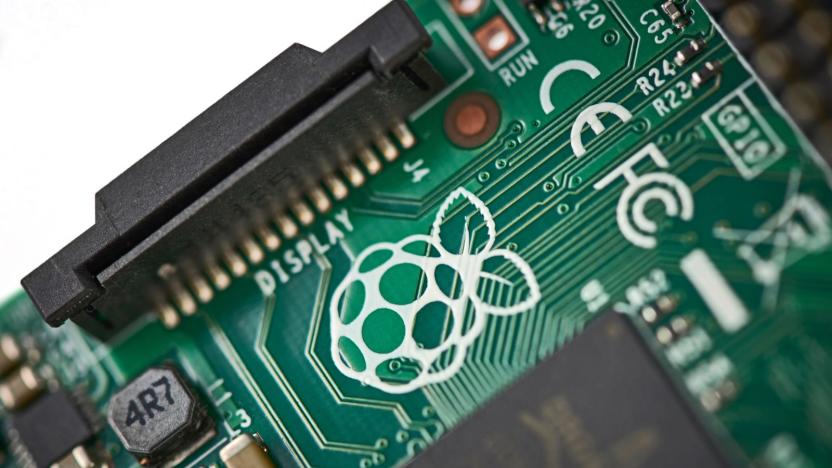
Raspberry Pi is merging with a coding foundation
Raspberry Pi's credit card-sized computers have helped kickstart a coding revolution. Thanks to their low cost, major companies like Google and VMWare have distributed thousands of the DIY boards to children all over the world in the hope that it'll inspire the next generation of computer scientists. The Raspberry Pi Foundation routinely works with educational partners to get its computers in the right hands, and its latest announcement is set to boost that outreach even more. Today, the foundation confirmed that it is to merge with CoderDojo to form what it believes will be the biggest code-promoting organization on the planet.
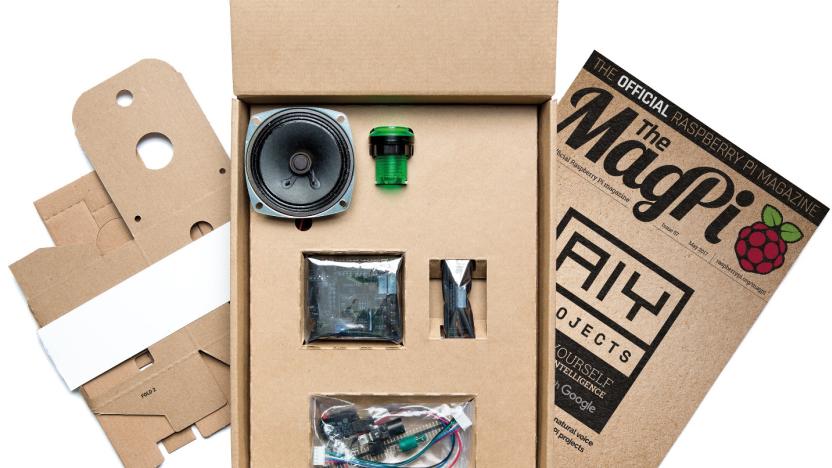
Google turns Raspberry Pi into a dirt cheap Home competitor
If you've ever wanted to have a conversation with your own tiny home-made computer, then your prayers have just been answered. Raspberry Pi has teamed up with Google, bringing voice integration to the Pi with a clever combination of hardware and software. Packed with the same tech that powers Google Home, the companies have released a kit that transforms a regular Raspberry Pi 3 into your very own virtual assistant. The pack contains a Voice HAT (Hardware Accessory on Top) board with a speaker and a microphone, giving Pi owners everything they need to add-in voice integration. (For the uninitiated, a HAT refers to any physical hardware that needs to be added on top of a Pi.)

'Zelda' fan creates an ocarina-controlled smart home
In the real world, an ocarina is a lot less functional than the magical one Link has in The Legend of Zelda: Ocarina of Time. As Nintendo 64 lovers know, the Hyrulian hero can use his instrument to do things like manipulate the rain and switch between night and day. In our realm, ocarinas just sound nice. Allen Pan, better known as Sufficiently Advanced on YouTube, decided he was tired of playing his ocarina without mystical results. So, he did what any Zelda fan with the technological know-how would do: create a smart home setup controlled by an ocarina.










